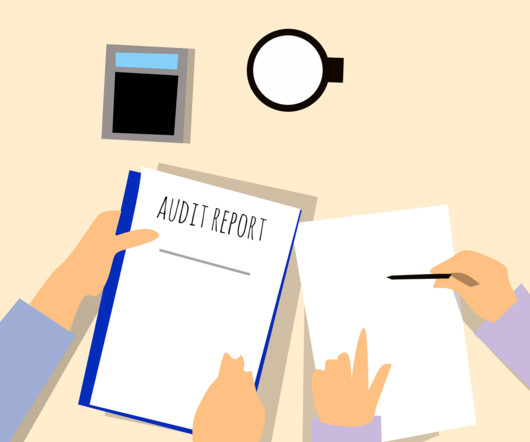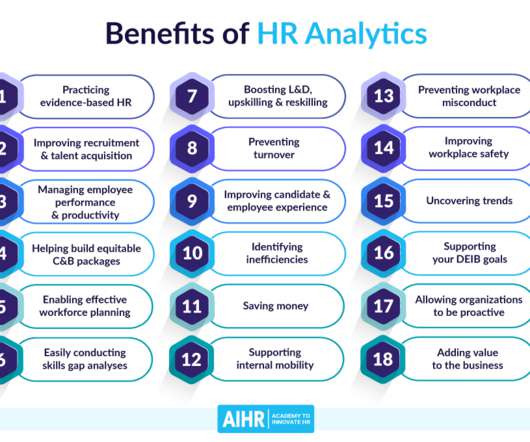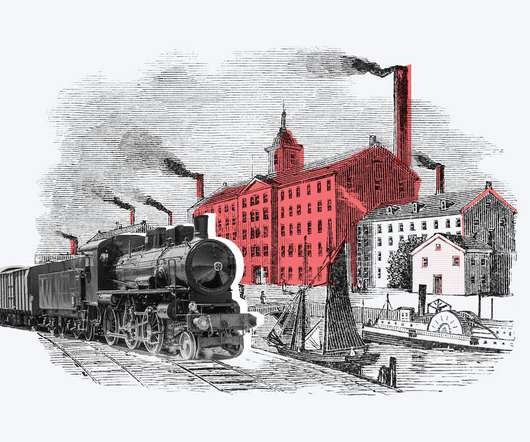Conducting an HR Audit – Review, Identify, Improve
CCI Consulting
JULY 12, 2023
Essentially, HR audits are an efficient tool used to improve processes like recruitment, retention, onboarding, training, salary and compensation, payroll, performance management, and many more common practices within an HR department. The word “audit” generally elicits the idea that an aspect of the operation is doing something wrong.
















Let's personalize your content